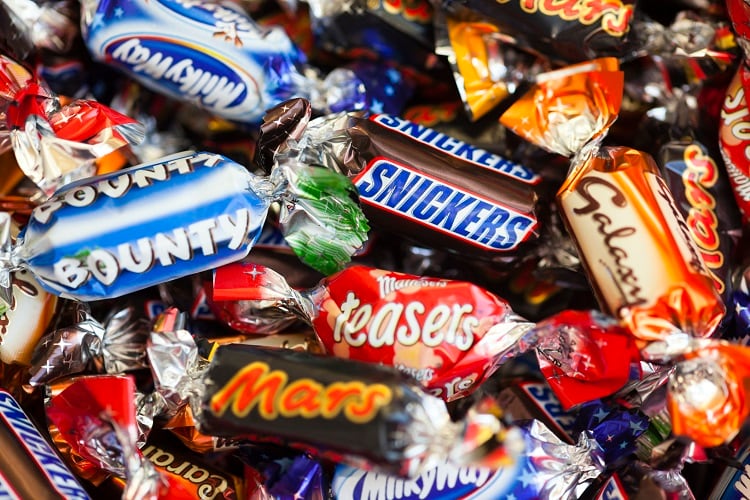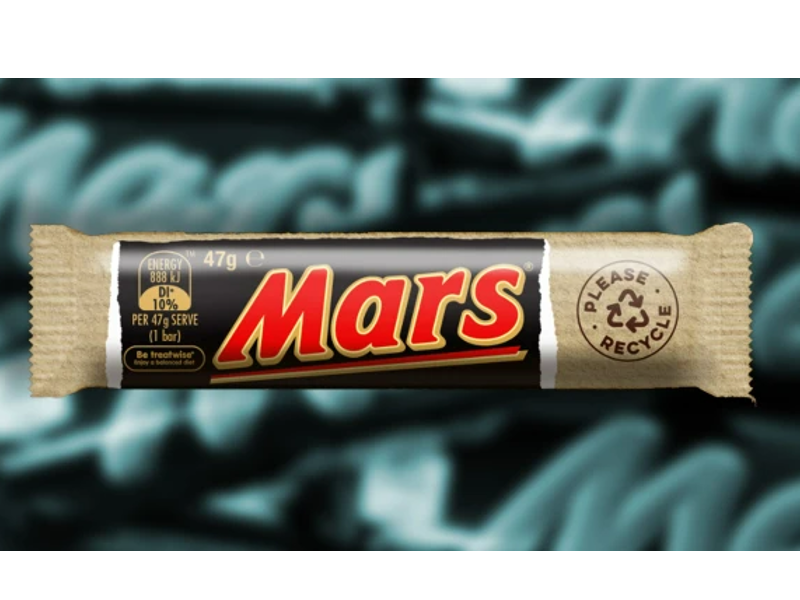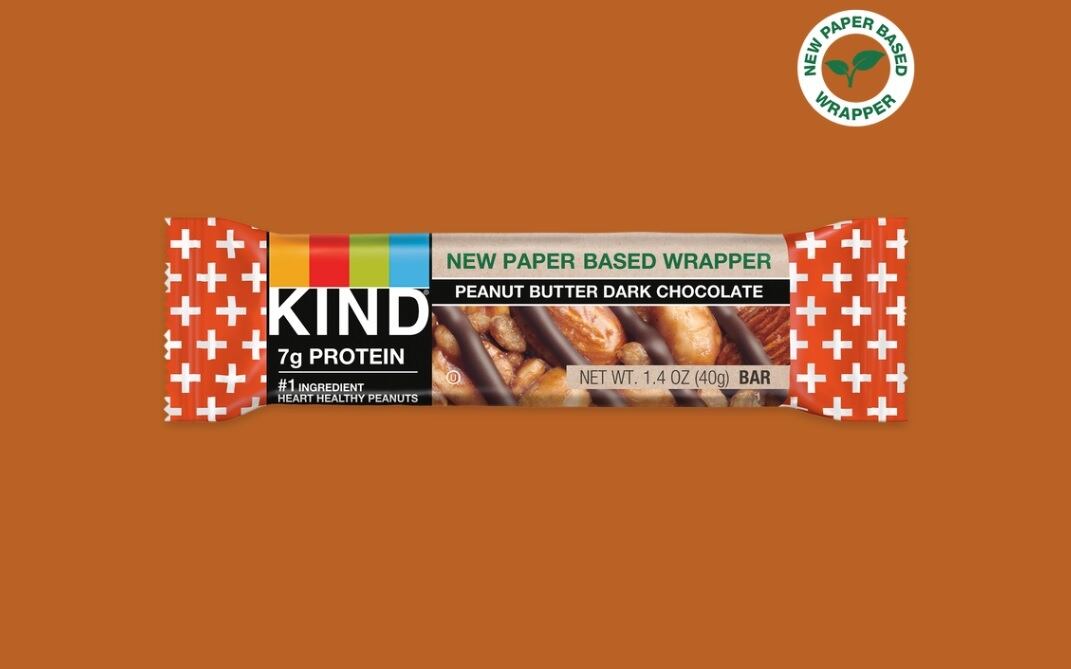In 2021, Mars Inc. committed to reach net zero emissions across its full value chain by 2050. Now, two years later the rice-to-chocolate major has outlined a net zero roadmap, including an ambition to halve emissions – from a 2015 baseline – by 2030.
Mars is pulling many levers to achieve its net zero goal, including transitioning to renewable energy, eliminating deforestation from its supply chains, increasing climate smart agriculture initiatives, and improving logistics.
The other tool in Mars’ toolbox is ingredient innovation and product reformulation. The company is developing new ingredients with lower greenhouse gas (GHG)-footprints for snacks and human food dishes, as well as alternative proteins for pet food.
Addressing a major culprit: agriculture
Mars, which boasts household name brands Ben’s Original, Twix, and Mars bar in its portfolio, has a current carbon footprint of 30.3mt CO2e. In other words, the company emits around the same amount of GHG as a country the size of Finland.
Thirty-eight percent of the company’s emissions come from agriculture, including its food ingredients. Other emissions are associated with land use change (27%), retail (11%), logistics (10%), packaging (5%), and direct operations (4%).
Not only is agriculture responsible for a majority of Mars’ emissions, but it is the most challenging to reduce. The company has made progress since 2015, which it attributes to a combination of recipe changes as well as early results from work in some crop supply chains.

To further lower emissions associated with agriculture, Mars is looking to optimise sourcing, process and distribution, and formulation. While changing product formulation can be challenging because there are numerous restraints – ranging from consumer perception to regulatory standards and nutritional requirements – the company sees opportunity to optimise and develop novel ingredients, as well as production practices, to further lower GHGs.
It is estimated such actions could reduce emissions by 0.7mt CO2e.
Tapping a potential ‘game-changer’ ingredient
So what kind of innovations is Mars leveraging to reduce its emissions? According to Janet Dawson, VP of Science and Technology at Mars Snacking, the company’s Ingredient Science team is committed to ‘pioneering a new era of sustainable ingredients’.
“Our latest breakthrough, developed in partnership with UC Davis, is a potential game-changer that could make allulose, a natural sugar substitute, more affordable and accessible though precise fermentation,” she told FoodNavigator.
Mars funded the research, which saw the Mars Advanced Research Institute team up with UC Davis scientists to work on the sugar alternative allulose, otherwise known as D-psicose.
In terms of flavour profile, allulose boasts close to 70% of the sweet taste of sucrose, yet is minimally metabolised by the body. This means that consumers can eat sweet treats with a reduced calorie intake. Further, the sugar substitute has an ‘imperceptible’ effect on blood glucose and insulin levels.
Allulose is naturally occurring, but the researchers discovered a new way of producing it in a lab.
By activating a natural process in a microorganism, the scientists were able to develop a method of high-yield and high-purity production through precise fermentation. Specifically, they found an industrial microorganism that has the enzymes to make allulose. The researchers were able to edit the organism’s metabolism to get the cells to convert glucose into allulose, so that when they were fed glucose, allulose was produced with a ‘noteworthy’ concentration, a yield of more than 60%, and purity of over 95%.
“Allulose is a great alternative to sugar, but we have not had a cost-effective way to manufacture it,” said Shota Atsumi, professor of chemistry at UC Davis and corresponding author on the paper published in Science of Food. “Our new method is efficient, economically feasible and could be scaled up for commercial production.”
This technological innovation is just one example of how Mars is ‘constantly pushing the boundaries of what’s possible’, said Dawson.
Using allulose instead of sugar is not currently an option for Mars in Europe, where the sugar substitute is considered a novel food and as such, requires pre-market. Naturally occurring allulose is currently undergoing safety assessments by the European Food Safety Authority (EFSA).
Looking to start-up innovation
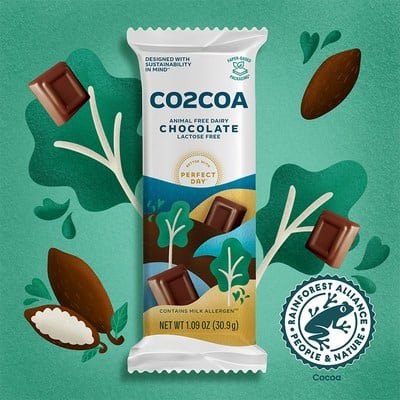
At the same time, Mars is looking to third-party ingredient suppliers to develop new products. In the US, Mars recently conducted a trial launch of CO2COA using Perfect Day’s precision fermentation-derived dairy protein.
Perfect Day is making whey, casein, and dairy fats – without the cow. To date, only its whey protein beta-lactoglobulin is on the market. To make animal-free whey, the start-up uses a genetically engineered strain of the filamentous fungus Trichoderma Reesi and feeds it with a broth made from water, nutrients and sugar in a fermenter tank. The fungus then excretes the dairy protein for Perfect Day to harvest.
A recent lifecycle assessment found that Perfect Day’s precision fermentation process uses up to 99% less water and produces up to 97% fewer GHG emissions compared to traditional production methods.
Lactose-free milk chocolate brand CO2COA was made with Rainforest Alliance certified cocoa and sold in 83% fibre-based packaging.
According to Dawson, Perfect Day’s animal-free protein delivered a ‘comparable chocolate experience that consumers ‘really liked’.
Encouraging sustainable practices within current supply chains
While working with novel sustainable ingredients will play a ‘critical’ role in delivering on Mars’ net zero commitment, Dawson stressed that this work is being conducted at the same time as efforts to make Mars’ current stable of ingredients more sustainable. “Our work on dairy is this ethos in action,” she told this publication.
“We’re working on reducing the footprint of our dairy supply by 50% by 2023 through a number of on-farm interventions in partnership with our top suppliers.”
Indeed Mars is a member of the Sustainable Agriculture Initiative’s (SAI) Sustainable Dairy Partnership, which aims to promote and communicate continuous improvement in dairy sustainability. The B2B programme targets commercial relationships between dairy buyers and processors.
The latter is required to report on their progress and impacts, to help dairy buyers understand sustainability progress within the supply chain.
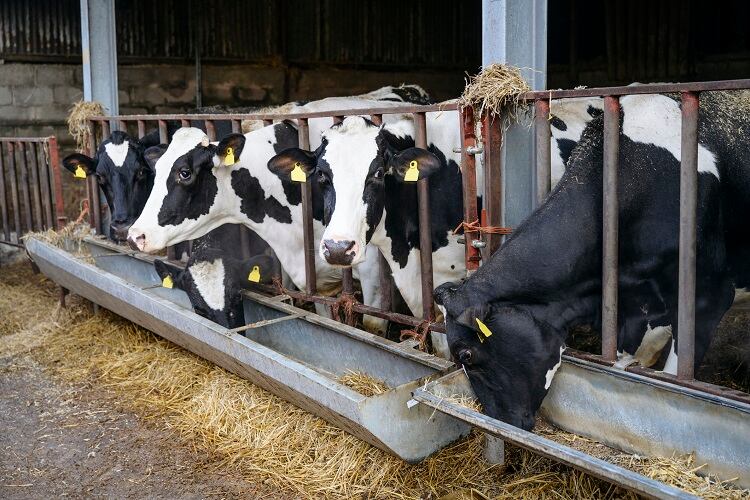
Mars is also a member of SAI’s Dairy Working Group, which helps ensure the company is sourcing dairy from suppliers with advanced sustainable farming practices that protect animal welfare, the environment and human rights.
How does M&A impact Mars’ net zero ambition?
Mars has active in M&A of late, incorporate a number of new brands into its portfolio of late. In 2020, the confectionery major acquired snacks brand KIND North America, in 2020 it bought fruit brand Trü Frü, and just last week it was announced Mars would be acquiring UK-based luxury chocolate retailer Hotel Chocolat.
Besides managing the GHGs of businesses Mars operates today, the company acknowledges that climate is an important factor in its inorganic growth strategy. When Mars acquires a business, it also acquires its GHG footprint, all the way back to its baseline year of 2015 and into the future.
So when considering an acquisition, Mars will assess the business’ GHG footprint. This includes building into the financial model an estimate of the costs to manage the footprint of the acquired business to align with Mars’ targets.
With regards to Hotel Chocolat, the business has already been making progress towards reducing its GHG emissions. The luxury chocolate maker has committed to net zero for its Scope 1 and 2 emissions (those within its own direct operations) by 2030, and reductions have been made by switching electricity to renewable sources (75% wind and 25% biomass). Almost all packaging is now sourced closer to home (the UK and EU), instead of being airfreighted in from East Asia, which the company says has led to a ‘significant’ reduction in emissions.
Other steps made to improve the sustainability of its packaging include reducing the amount of packaging where possible, using Forest Stewardship Council (FSC) certified card and paper, and designing packaging to be re-usable.


